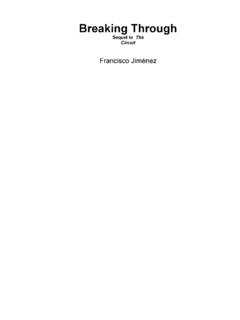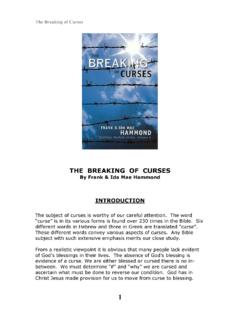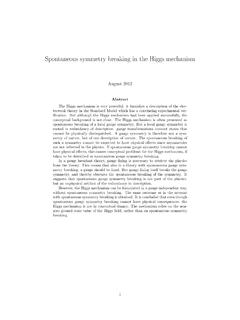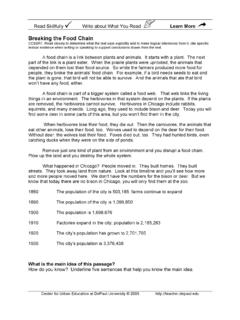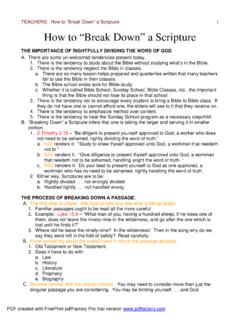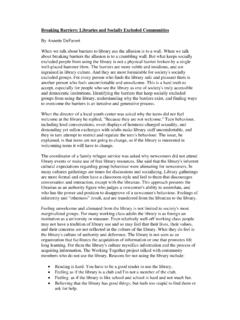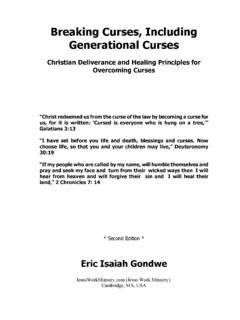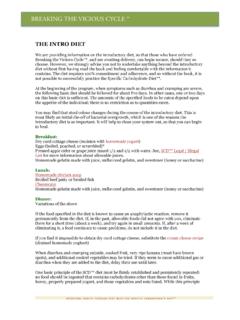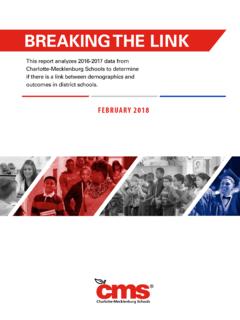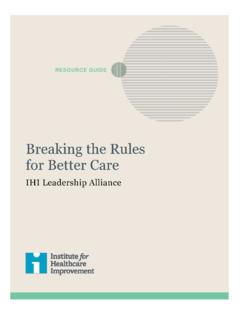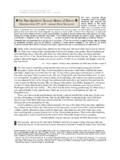Transcription of BreakingThrough
1 Breaking Through Sequel to The Circuit Francisco Jim nez Houghton Mifflin Company Boston 2001. To my family 2001 by Francisco Jim nez All rights reserved. For information about permission to reproduce selections from this book, write to Permissions, Houghton Mifflin Company, 215 Park Avenue South, New York, New York 10003. The text of this book is set in 11-point Goudy. Library of Congress Cataloging-in-Publication Data Jim nez, Francisco, 1943 . Breaking through / Francisco Jim nez. p. cm. Sequel to: The circuit. Summary: Having come from Mexico to California ten years ago, fourteen-year-old Francisco is still working in the fields but fighting to improve his life and complete his education.
2 ISBN 0-618-01173-0 (English hardcover). ISBN 0-618-34248-6 (English paperback). 1. Mexican Americans Juvenile literature. [1. Mexican Americans . Biography. 2. Agricultural laborers literature. 3. California . literature.] I. Title. Br 2001 [Fic] dc21 2001016941. Manufactured in the United States of America QUM 10 9 8 7 6 5 4 3 2 1. Acknowledgments I would like to thank my brother, Roberto, and my mother, Joaquina, for providing me with a wealth of personal stories, some of which I have incorporated in this book. Special thanks to my immediate family Laura, Pancho, Lori, Carlo Vicente, Miguel, and Tom s for patiently listening to various drafts and offering helpful comments. I wish to thank the community of my childhood, whose courage, tenacity, faith, and hope in the midst of adversity have been a constant inspiration to me in my writing and in my personal and professional life.
3 I have lasting gratitude to my teachers, whose guidance and faith in my ability helped me break through many barriers. Thanks to many students, colleagues, and friends, especially Fr. Paul Locatelli, , Fr. Stephen Privett, , Peter Facione, Don Dodson, Alma Garc a, Susan Erickson, and Alan Bern, for encouraging me to continue writing. I am thankful to Santa Clara University for giving me the time to write this book and for valuing my work. Finally, I am also indebted to my editor, Ann Rider, for her valuable suggestions for improvement and her gentle encouragement to write from the heart. Contents Forced Out, 1. Home Alone, 19. Stepping Out, 29. Together Again, 42. Back to the Fields, 48.
4 Saint Christopher Medal, 56. Summer Skirmishes, 61. Becoming a Saint, 70. If the Shoe Fits, 80. A Promotion, 83. A Typing Machine, 91. Making Connections, 94. Broken Heart, 103. Behind the Wheel, 109. Turning a Page, 113. Los Santitos, 117. Choosing Sides, 122. Junior Scandals, 127. Running for Office, 135. A New Life, 146. A Test of Faith,151. A Fumble, 157. A Breakthrough, 163. Graduation Day, 175. Still Moving, 185. A Note from the Author, 194. There is at bottom only one problem in the How does one break through? How does one get into the open? How does one burst the cocoon and become a butterfly? Thomas Mann, Dr. Faustus Forced Out I lived in constant fear for ten long years, from the time I was four until I was fourteen years old.
5 It all started back in the late 1940s when Pap , Mam , my older brother, Roberto, and I. left El Rancho Blanco, a small village nestled on barren, dry hills several miles north of Guadalajara, Jalisco, Mexico, and headed to California, hoping to leave our life of poverty behind. I remember how excited I was making the trip on a second-class train traveling north from Guadalajara to Mexicali. We traveled for two days and nights. When we arrived at the United States Mexico border, Pap told us that we had to cross the barbed-wire fence without being seen by la migra, the immigration officers dressed in green uniforms. During the night we dug a hole underneath the wire wall and wiggled like snakes under it to the other side.
6 "If anyone asks you where you were born," Pap . said firmly, "tell them Colton, California. If la migra catches you, they'll send you back to Mexico." We were picked up by a woman whom Pap had contacted in Mexicali. She drove us, for a fee, to a tent labor camp on the outskirts of Guadalupe, a small town on the coast. From that day on, for the next ten years, while we traveled from place to place throughout California, following the crops and living in migrant labor camps, I. feared being caught by the Border Patrol. As I got older, my fear of being deported grew. I did not want to return to Mexico because I liked going to school, even though it was difficult for me, especially English class.
7 I enjoyed learning, and I knew there was no school in El Rancho Blanco. Every year Roberto and I missed months of school to help Pap and Mam work in the fields. We struggled to make ends meet, especially during the winter, when work was scarce. Things got worse when Pap began to have back problems and had trouble picking crops. Luckily, in the winter of 1957, Roberto found a part-time job working year-round as a janitor at Main Street Elementary School in Santa Maria, California. We settled in Bonetti Ranch, where we had lived in army barracks off and on for the past few years. My brother's job and mine thinning lettuce and picking carrots after school and on weekends helped support our family.
8 I was excited because we had finally settled in one place. We no longer had to move to Fresno at the end of every summer and miss school for two and a half months to pick grapes and cotton and live in army tents or old garages. But what I feared most happened that same year. I was in my eighth-grade social studies class at El Camino Junior High School in Santa Maria. I was getting ready to recite the preamble to the Declaration of Independence, which our class had to memorize. I had worked hard at memorizing it and felt confident. While I waited for class to start, I sat at my desk and recited it silently one last time: We hold these truths to be self-evident: that all men are created equal; that they are endowed by their creator with certain unalienable rights; that among these are life, liberty, and the pursuit of I was ready.
9 After the bell rang, Miss Ehlis, my English and social studies teacher, began to take roll. She was interrupted by a knock on the door. When she opened it, I saw the school principal and a man behind him. As soon as I saw the green uniform, I panicked. I felt like running, but my legs would not move. I trembled and could feel my heart pounding against my chest as though it too wanted to escape. My eyes blurred. Miss Ehlis and the officer walked up to me. "This is him," she said softly, placing her right hand on my shoulder. "Are you Francisco Jim nez?" he asked firmly. His deep voice echoed in my ears. "Yes," I responded, wiping my tears and looking down at his large, black shiny boots.
10 At that point I wished I were someone else, someone with a different name. My teacher had a sad and pained look in her eyes. I followed the immigration officer out of the classroom and into his car marked BORDER PATROL. I climbed in the front seat, and we drove down Broadway to Santa Maria High School to pick up Roberto, who was in his sophomore year. As cars passed by, I slid lower in the seat and kept my head down. The officer parked the car in front of the school and asked me to wait for him while he went inside the administration building. A few minutes later, the officer returned with Roberto following him. My brother's face was as white as a sheet. The officer asked me to climb into the back seat with Roberto.
